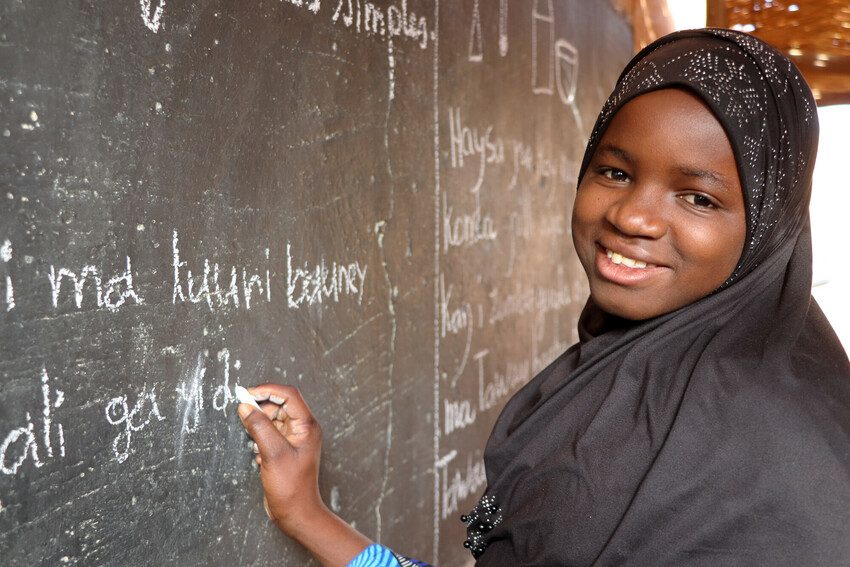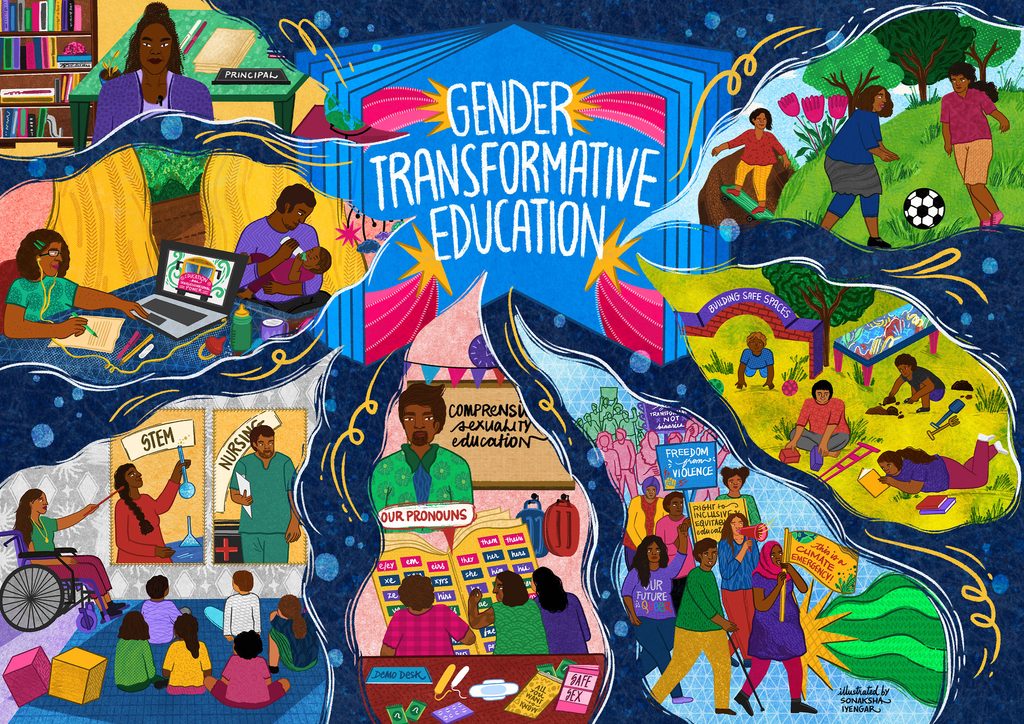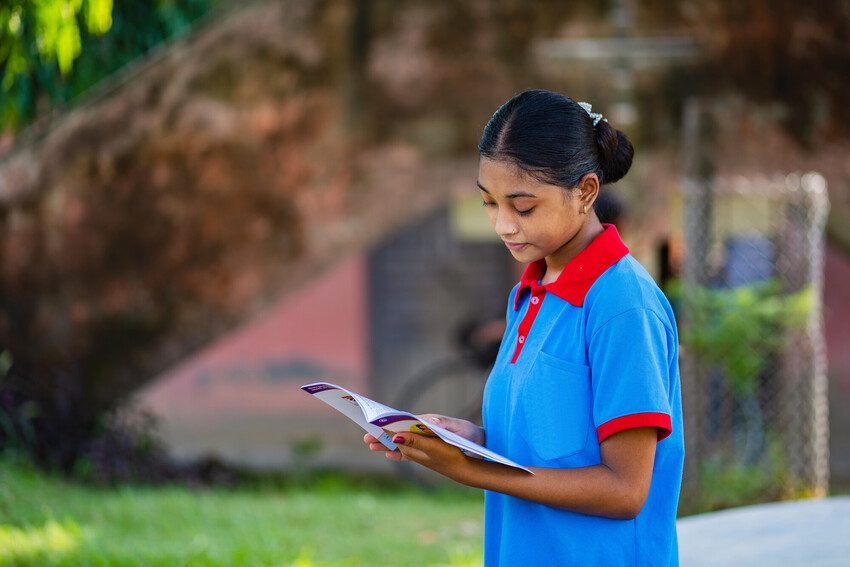Youth leaders call for gender equality and education at COP28
Three youth advocates give their perspective on climate action, gender equality and education; and their hopes for COP28.
Our approach to inclusive, quality education is through the lens of gender-transformative education.
This seeks to utilise all parts of an education system – from policies to practices to community engagement – to transform stereotypes, attitudes and practices. Our aim is to challenge power relations, rethink gender norms and binaries, and raise awareness of the root causes of inequality and systems of oppression.

School is a space in which girls exercise their agency, make their voice heard, and access their first leadership opportunities.
However, 129 million girls are currently out of school.
Being out of school doesn’t just have devastating consequences for girls’ life opportunities – it places them at risk of teen pregnancy, child marriage, female genital mutilation and other forms of gender-based violence.
Education is critical in tackling harmful gender norms, and empowering girls to drive change. It gives girls the skills to become leaders, innovators and change makers, and to tackle future crises.
We aim to provide millions of girls across the world with safe, quality, gender-transformative education so they may find their voices and learn to lead. We work ensure that girls realise they are equally deserving of the skills required to succeed.
We focus our efforts on equality, inclusion and diversity. Our programmes don’t just work in classrooms with teachers, but also include communities, governments, religious leaders, family members and children in order to bring an end to gender inequality in education.
Unless world leaders step up and invest adequately in education, there is a risk that the climate emergency will lead to millions more girls missing out on school in the coming years.
Increased investment in education and girls’ leadership will play an essential role in ensuring girls and young women are able to demand their rights, hold decision makers to account, and challenge the status quo, including the systems and norms which reinforce gender and climate injustice around the world.
This is why we are working together with young activists who are calling on world leaders to fund and support gender-transformative, climate-aware education. Transform Education* is a coalition of feminist activists and youth-led networks hosted by the United Nations Girls’ Education Initiative (UNGEI), working to transform education for gender equality.
Through our partnership, we have jointly created the #EducationShiftsPower campaign, using key moments throughout the year, including the Transform Education Summit, to advocate for education that advances gender and climate justice and demand young people are engaged in transforming education systems (including in curriculum development and decisions on financing).
Girls in crisis settings are nearly 2.5 times more likely to be out of school than those living in countries not in crisis. In emergencies and protracted crises, education responses are severely underfunded.
The COVID-19 pandemic laid bare gross inequalities in our society, and the climate emergency is set to exacerbate these long into the future. Moreover, anti-rights movements push back on education, particularly on gender-transformative education and comprehensive sexuality education.
These factors hit girls’ education particularly hard and threaten to roll back years of progress, but we won’t stand by and watch girls fall even further behind.

Re-imagining education for a more inclusive world.
Learn more about mainstreaming Gender Transformative Education in development and humanitarian programming.

* Plan International is not responsible for the content of other sites.